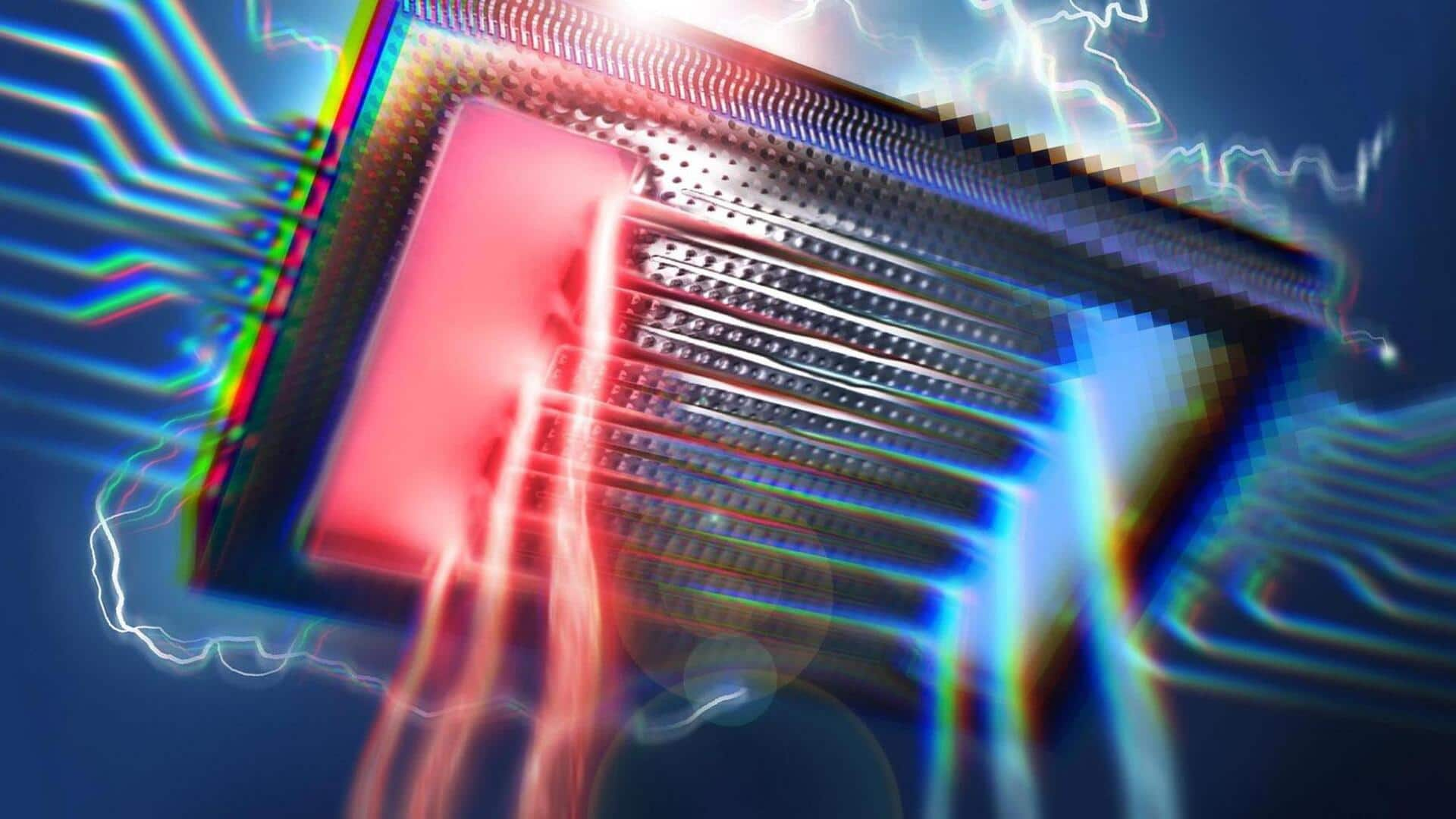
Microsoft unveils breakthrough method that keeps AI chips 65% cooler
What's the story
Microsoft has made a major advancement in the field of artificial intelligence (AI) chip cooling. The tech giant is using microfluidics, a method that uses liquid to cool chips, to improve the efficiency of its data centers. This new technique could offer three times better cooling than existing methods and also allow for overclocking without the risk of damaging the chip.
Innovative technique
Microfluidics method brings coolant closer to the heat source
Traditional data centers use cold plates to cool down GPUs, which are effective but not very efficient. The plates are separated from the heat source by several layers of material, limiting their performance. Microsoft's new microfluidics method brings the coolant closer to the source, flowing it through thread-like channels etched onto the back of the chip. This innovative approach could reduce maximum silicon temperature rise inside a GPU by up to 65%.
AI assistance
AI optimization and nature-inspired etchings
Microsoft has also used artificial intelligence (AI) to optimize the flow of coolant through these channels. The etchings on the chip resemble the veins of a leaf or butterfly wing, drawing inspiration from nature itself. This novel approach could allow Microsoft to place servers closer together physically, reducing latency and improving waste heat use.
Potential applications
Successful tests on office and AI GPUs
Microsoft has already tested microfluidics on server chips for Office cloud apps and GPUs handling AI tasks. The company demonstrated the technology under a microscope at its Redmond campus, showing significant improvements over conventional approaches. This method could also enable Microsoft to develop more powerful chips by stacking them on top of each other.
Strategic move
A step toward hardware customization in data centers
The new cooling technology is part of a larger effort to customize hardware in Microsoft's rapidly expanding data centers. The company has added over 2 gigawatts worth of capacity in the last year alone. "When you are operating at that scale, efficiency is very important," Rani Borkar, said Vice President for hardware systems and infrastructure at Microsoft's Azure.